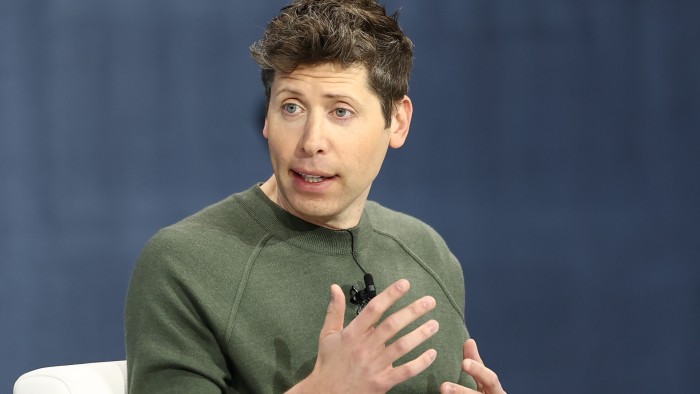Unlock the Editor’s Digest for free
Roula Khalaf, Editor of the FT, selects her favourite stories in this weekly newsletter.
OpenAI is in discussions to ditch a provision that shuts Microsoft out of its most advanced models when the start-up achieves “artificial general intelligence”, as it seeks to unlock billions of dollars of future investment.
Under current terms, when OpenAI creates AGI — defined as a “highly autonomous system that outperforms humans at most economically valuable work” — Microsoft’s access to such a technology would be void. The OpenAI board would determine when AGI is achieved.
The start-up is considering removing the stipulation from its corporate structure, enabling the Big Tech group to continue investing in and accessing all OpenAI technology after AGI is achieved, according to multiple people with knowledge of the discussions. A final decision has not been made and options are being discussed by the board, they added.
The clause was included to protect the potentially powerful technology from being misused for commercial purposes, giving ownership of the technology to its non-profit board. According to OpenAI’s website: “AGI is explicitly carved out of all commercial and IP licensing agreements.”
But the provision potentially limits the value of its partnership for Microsoft, which has pumped more than $13bn into OpenAI, and could disincentivise the Big Tech group from further investment.
More funding will be needed given the eye-watering costs involved in developing advanced AI models in a race against deep-pocketed rivals such as Google and Amazon.
The San Francisco-based group led by Sam Altman, which was recently valued at $150bn, is currently restructuring to become a public benefit corporation. That move represents a departure from its origins as a not-for-profit research lab.
As part of the changes, OpenAI is discussing new terms with investors, including its largest shareholder Microsoft, according to multiple people familiar with the conversations.
“When we started, we had no idea we were going to be a product company or that the capital we needed would turn out to be so huge,” Altman told a New York Times conference on Wednesday. “If we knew those things, we would have picked a different structure.”
“We’ve also said that our intention is to treat AGI as a mile marker along the way. We’ve left ourselves some flexibility because we don’t know what will happen,” added Altman, who could receive a direct equity stake in OpenAI for the first time as part of the restructure.
OpenAI began raising outside capital in 2019, receiving a $1bn investment from Microsoft that year. At the time, the company said it intended “to license some of our pre-AGI technologies” to Microsoft to cover the costs of developing cutting-edge AI.
OpenAI has advised backers to consider their investments “in the spirit of a donation, with the understanding that it may be difficult to know what role money will play in a post-AGI world”.
But its steady move to becoming a for-profit entity has received strong criticism from rivals, including Elon Musk, an early backer and co-founder of OpenAI.
The billionaire Tesla chief, who has since founded a rival start-up xAI, recently filed a lawsuit against OpenAI and Microsoft, accusing Altman of “deceit of Shakespearean proportions” and seeking to void its commercial partnership with Microsoft.
As part of the proposed restructuring, the ChatGPT-maker will also retain an independent not-for-profit entity, which would have a stake in the new public benefit corporation and potentially a trust, according to people familiar with the discussions. The not-for-profit would have access to research and technology but solely focus on pursuing OpenAI’s mission of benefiting humanity.
OpenAI declined to comment on the specifics of negotiations around the restructuring but Bret Taylor, chair of OpenAI’s board, said the board of directors of the non-profit “is focused on fulfilling our fiduciary obligation by ensuring that the company is well-positioned to continue advancing its mission of ensuring AGI benefits all of humanity”.
He added: “While our work remains ongoing as we continue to consult independent financial and legal advisers, any potential restructuring would ensure the non-profit continues to exist and thrive, and receives full value for its current stake in the OpenAI for-profit with an enhanced ability to pursue its mission.”
Microsoft declined to comment.
Additional reporting by Madhumita Murgia in London
Read the full article here




